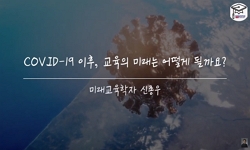Purpose: In this study, analysis was conducted using the Q-methodology to find out the types of elderly people participating in Health Qigong after COVID-19. The Q-methodology studies human subjectivity by considering an individual's perception, attit...
http://chineseinput.net/에서 pinyin(병음)방식으로 중국어를 변환할 수 있습니다.
변환된 중국어를 복사하여 사용하시면 됩니다.
- 中文 을 입력하시려면 zhongwen을 입력하시고 space를누르시면됩니다.
- 北京 을 입력하시려면 beijing을 입력하시고 space를 누르시면 됩니다.

Q-Methodological Approach on Type Analysis of Elderly Participating in Health Qigong after COVID-19
한글로보기https://www.riss.kr/link?id=A108286161
- 저자
- 발행기관
- 학술지명
- 권호사항
-
발행연도
2022
-
작성언어
-
- 주제어
-
KDC
300
-
등재정보
KCI등재후보
-
자료형태
학술저널
-
수록면
88-97(10쪽)
- 제공처
-
0
상세조회 -
0
다운로드
부가정보
다국어 초록 (Multilingual Abstract)
Method: In the research procedure, the Q-population was first constructed and the Q sample statement was prepared. In the Q-population, 85 data were obtained through in-depth interviews, 46 data obtained through a literature review were derived, and 131 were finally derived as the primary statement. Comprehensive data were analyzed through in-depth interviews, related literature research, and expert meetings, and a total of 34 Q-sam-ple statements related to the research topic were extracted. Data analysis was performed using the QUNAL-PC program, and the principal component factor analysis method was used for factor analysis.
Results: As a result of the study, the elderly who participated in Health Qigong were found to be the final four types. Type I was classified as an active participation type among the elderly participating in Health Qigong. Type II was classified as a type that recognized that Health Qigong training was connected with healing. Type III was classified as a type recognized that Health Qigong is related to psychological sympathy, that is, emotional state. Type IV was classified as a type that recognizes that it is possible to make new colleagues while socializing with others through Health Qigong.
Conclusion: Currently, Korean society is going through an age of super-aging, and there is a view that sees old age as a time of new creation. Therefore, prepare for successful aging, it is necessary to find a positive way to improve the lives of the elderly. The classification contents of the elderly participating in Health Qigong derived as a result of this study reflect the perception and attitude of the elderly participating in physical activity well.
Purpose: In this study, analysis was conducted using the Q-methodology to find out the types of elderly people participating in Health Qigong after COVID-19. The Q-methodology studies human subjectivity by considering an individual's perception, attitude, emotion, and behavior toward an object at the same time.
Method: In the research procedure, the Q-population was first constructed and the Q sample statement was prepared. In the Q-population, 85 data were obtained through in-depth interviews, 46 data obtained through a literature review were derived, and 131 were finally derived as the primary statement. Comprehensive data were analyzed through in-depth interviews, related literature research, and expert meetings, and a total of 34 Q-sam-ple statements related to the research topic were extracted. Data analysis was performed using the QUNAL-PC program, and the principal component factor analysis method was used for factor analysis.
Results: As a result of the study, the elderly who participated in Health Qigong were found to be the final four types. Type I was classified as an active participation type among the elderly participating in Health Qigong. Type II was classified as a type that recognized that Health Qigong training was connected with healing. Type III was classified as a type recognized that Health Qigong is related to psychological sympathy, that is, emotional state. Type IV was classified as a type that recognizes that it is possible to make new colleagues while socializing with others through Health Qigong.
Conclusion: Currently, Korean society is going through an age of super-aging, and there is a view that sees old age as a time of new creation. Therefore, prepare for successful aging, it is necessary to find a positive way to improve the lives of the elderly. The classification contents of the elderly participating in Health Qigong derived as a result of this study reflect the perception and attitude of the elderly participating in physical activity well.
목차 (Table of Contents)
- 1. Introductions
- 2. Research Methods
- 3. Results
- 4. Conclusion and Recommendations
- 5. References
- 1. Introductions
- 2. Research Methods
- 3. Results
- 4. Conclusion and Recommendations
- 5. References
- 6. Appendix
동일학술지(권/호) 다른 논문
-
- J-INSTITUTE
- Jeongshin Park(Jeongshin Park)
- 2022
- KCI등재후보
-
- J-INSTITUTE
- Woonsil Ko(Woonsil Ko)
- 2022
- KCI등재후보
-
- J-INSTITUTE
- Miyoung Choi(Miyoung Choi)
- 2022
- KCI등재후보
-
- J-INSTITUTE
- Haedeun Kim(Haedeun Kim)
- 2022
- KCI등재후보




 스콜라
스콜라






